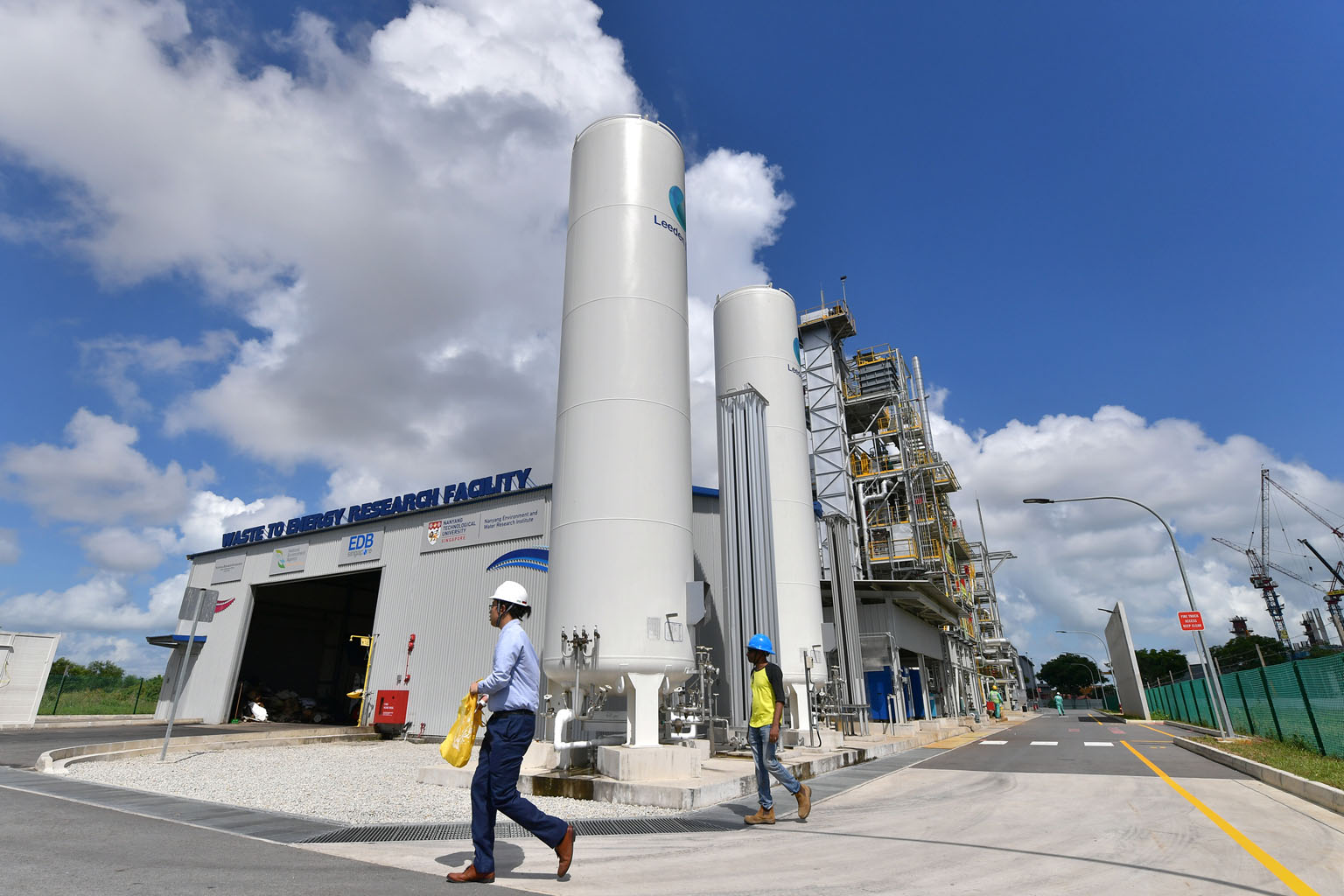New plant turns waste into power and building materials
Facility may one day be used to process medical and hazardous waste too
Sign up now: Get ST's newsletters delivered to your inbox

The $40 million Waste-to-Energy Research Facility in Tuas South is supported by the National Research Foundation, National Environment Agency, Economic Development Board and Nanyang Technological University.
ST PHOTO: NG SOR LUAN
A new $40 million facility in Tuas South will turn all the rubbish collected from Nanyang Technological University (NTU) into valuable resources like electricity and construction materials.
Launched yesterday by Minister for the Environment and Water Resources Masagos Zulkifli, the facility is supported by the National Research Foundation, National Environment Agency (NEA), Economic Development Board and NTU.
More than 11 tonnes of rubbish a day can be processed at the plant.
Waste materials are shredded, dried and converted into gas and other useful by-products.
This process is called gasification, where organic or fossil fuel-based materials are converted into carbon monoxide, hydrogen and carbon dioxide. As the waste is mixed with biomass charcoal, the furnace turns up the heat to 1,600 deg C.
In comparison, conventional mass burn incinerators operate at around 850 deg C.
The plant may one day be used to process medical and hazardous waste too, as its ability to burn at high temperatures is capable of killing harmful pathogens.
These same high temperatures convert rubbish to synthesis gas, or syngas - which is mostly composed of carbon monoxide and hydrogen.
Syngas can be used to produce electricity, and can also be converted into liquid fuel.
The remaining rubbish is converted into recyclable metal alloys and slag, which is a glass-like material that can be used as a replacement for sand and concrete.
"This plant will eventually be able to treat various types of material like hazardous waste, sludge, medical waste. It also operates based on biomass charcoal, which is a more sustainable form of renewable energy," said principal investigator Grzegorz Lisak, assistant professor at the NTU School of Civil and Environmental Engineering.
"If waste-water plants and recycling plants are located nearby, 100 per cent of the waste in the surrounding area can be sent to this facility and processed," he said, noting this plant was proof that the NTU-developed technology could work and be scalable in future.
Said Mr Masagos: "The facility incorporates various plug-and-play features to facilitate test-bedding different aspects of gasification technology. It also provides hands-on education and practical training that will help grow our local expertise in waste-to-energy processes.
"To minimise the amount of waste headed for the incineration plants, we have gone one step further. We will recover value from ash or treated waste to optimise our remaining landfill, and keep it open as long as we can."
Mr Tan Meng Dui, chief executive officer of the NEA, said: "This partnership with NTU Singapore also reflects NEA's expanding focus on waste management technologies, building on NEA's traditional strengths in waste-to-energy facilities."
And being the first of its kind in Singapore, the facility will be able to successfully convert waste to energy, and waste to resource at one waste treatment facility, he said.
"The launch of this research facility in this Year Towards Zero Waste is thus timely, and holds special significance," he added.
And the plant is also a step in the right direction for NTU, as the university continues to explore next-generation technologies in areas like gas separation technologies and flue gas treatment.
"This new facility will enable our scientists to scale up promising ideas from lab prototypes into practical engineering solutions for sustainable waste management together with our industry partners, contributing to Singapore's vision of a zero-waste economy where waste is upcycled into valuable resources," said the president of NTU, Professor Subra Suresh.
"The university is committed to achieving a zero-waste target, and is an open test bed where Government, academia and industry leaders can collaborate to develop new innovations," he added.


